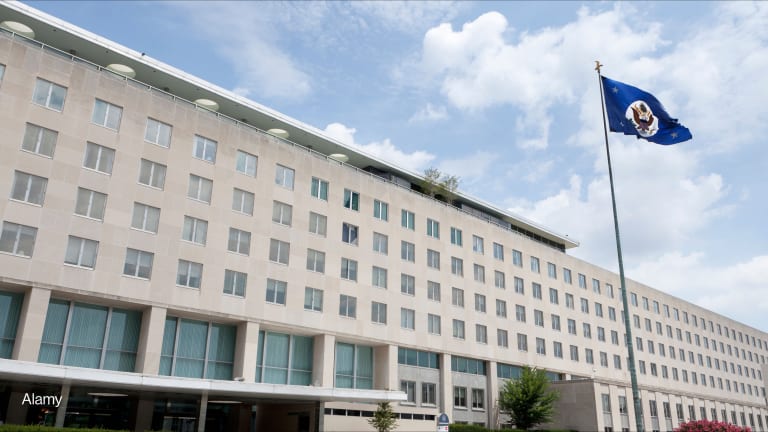US looks to 'reset leadership and coordination' as Ebola outbreak worsens

WASHINGTON — Four major donors to the Ebola outbreak response in the Democratic Republic of the Congo have “jump-started a new strategic plan” that aims to revamp leadership and coordination, community engagement, and financial management, according to a U.S. aid official.
“There are some significant shifts underway right now,” Tim Ziemer, senior deputy assistant administrator at the U.S. Agency for International Development, said Wednesday.
“We have been teaming up with our international partners: the World Bank, the U.K. government, and the E.U. They’re the principal other investors in addition to the United States, and there was an acknowledgment that we need a total reset in three major areas,” he said.
According to Ziemer, who spoke at think tank American Enterprise Institute in Washington, D.C., the World Health Organization initially approached the current Ebola outbreak in DRC with a “four-month horizon.”
The challenges facing MSF in supporting DRC Ebola response
Dr. Joanne Liu, international president of MSF, says communities in DRC have been left behind, creating failure in the Ebola response — and blames a growing security mindset where countries only choose to assist when they feel threatened.
“Ten months into it they’re still there,” he said. “They have a team of wonderful, committed, passionate people that are operating under significant risks, and they’re looking at an extended horizon of 10 to 12 months.”
WHO has reported 2,265 Ebola cases and 1,522 deaths so far.
Given challenges with human resources and retention, WHO’s capacity “to lead and respond effectively” declines the longer the organization’s health experts remain deployed to operate “in one of the most challenging places in the world,” Ziemer said.
“There was clearly a need to reset leadership and coordination and take it out of the hands of the WHO,” he added, noting that the U.S. government has welcomed the United Nations’ decision last month to appoint David Gressley as U.N. emergency Ebola coordinator responsible for overseeing the response.
Gressley’s appointment will have to be backed up by a team that is adequately funded and “manned with the right people,” Ziemer said. They will also have to find a way to better incorporate international organization expertise and capacity into the response effort.
“There has been a less than optimum engagement of the NGOs,” Ziemer reported.
With the new leadership structure, the U.S. government hopes to see a new strategic plan produced by the end of July.
Among the issues that plan will attempt to tackle is the current lack of financial transparency. The current “burn rate” for Ebola response funding is roughly $1 million a day, Ziemer said, and projecting that out for another 10 or 12 months suggests a response somewhere in the range of $350 to $400 million, he estimated.
“If you’re going to get donors to step up to the plate and invest significant cash, you’ve got to have transparency and accountability — know where the cash is, know where the gaps are — so that we can clearly step up and say, ‘we’re all in this together.’ We don’t have that today,” Ziemer said.
One issue standing in the way of more U.S. government funding for DRC is the Trump administration’s strict implementation of trafficking in persons sanctions against the country’s government. The Trafficking Victims Protection Act categorized countries according to the actions their governments take to prevent human trafficking. Countries at the highest level of concern can see government-to-government assistance withheld unless the U.S. president issues a waiver, which President Donald Trump has elected not to do for DRC, despite the Ebola outbreak.
“We need a holistic approach to this, and there needs to be developmental support within the communities, and some of those programs certainly have been impacted by this,” said Ramsey Day, senior deputy assistant administrator in USAID’s Africa Bureau.
That situation could be changing soon though.
“The White House has been reluctant to issue country-level waivers, but we’re in discussions now, and we believe that there could be a different posture,” Day said.
Update, June 27, 2019: This article has been updated to clarify that four major donors are spearheading the reset.
Search for articles
Most Read
- 1
- 2
- 3
- 4
- 5








